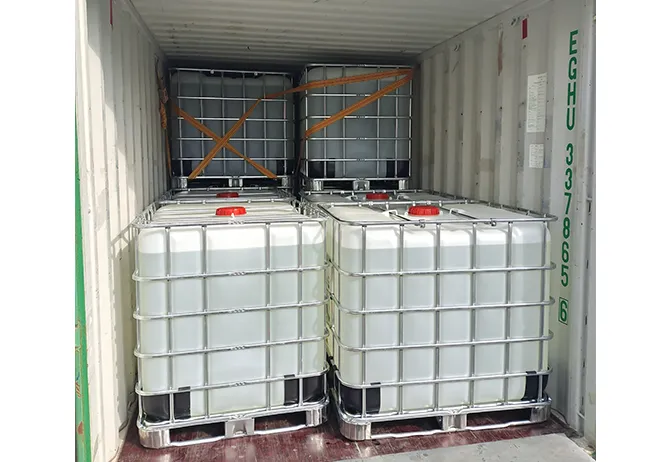
Exploring the Uses and Benefits of Preservative E222 in Food Safety
Understanding Preservative E222 A Comprehensive Overview
Preservative E222, commonly known as sodium bisulfite, is widely used in the food industry as an additive to prolong shelf life and maintain the quality of various products. As modern consumers increasingly seek convenience and longer-lasting foods, the role of preservatives such as E222 is becoming ever more critical. This article explores the functions, safety, and common applications of E222 in the food sector.
What is E222?
E222 is a chemical compound that belongs to the class of sulfites, which are salts or esters of sulfurous acid. It is often found in the form of a white crystalline powder or a colorless solution. Sodium bisulfite serves multiple functions in food preservation, including
- Antioxidant Properties It prevents oxidation in food products, which is essential in maintaining flavor and color. - Antimicrobial Action E222 inhibits the growth of certain bacteria and molds, thereby reducing spoilage and extending the shelf life of foods. - Browning Prevention It is particularly effective in inhibiting enzymatic browning in fruits, vegetables, and juices, preserving their appealing color and taste.
Applications of E222
E222 is commonly employed in a variety of food products. It finds applications in
1. Fruits and Vegetables E222 is frequently used in dried fruits and vegetables. It helps retain their vibrant colors and prevents discoloration, which can occur due to exposure to air. 2. Wines Sodium bisulfite is a critical component in winemaking. It serves to prevent spoilage and oxidation, allowing for a cleaner and more stable product.
preservative 222

3. Baked Goods E222 can be added to doughs and batters to prolong freshness and inhibit the growth of molds that can cause spoilage.
4. Condiments and Sauces Many commercial sauces and condiments incorporate E222 to maintain their flavor and extend their shelf life.
Safety and Regulations
The use of preservatives like E222 is regulated by food safety authorities in many regions. Organizations such as the Food and Drug Administration (FDA) in the United States and the European Food Safety Authority (EFSA) in the EU have established permissible limits for sodium bisulfite in food products.
While E222 is considered safe for consumption in small quantities, some individuals may be sensitive to sulfites. This sensitivity can lead to allergic reactions, particularly in those with asthma or other respiratory conditions. As a result, foods containing E222 or other sulfites must be labeled appropriately to inform consumers of their presence.
Conclusion
Sodium bisulfite, known as E222, plays a crucial role in modern food preservation. Its ability to inhibit oxidation and microbial growth, along with preventing browning in fruits and vegetables, makes it an invaluable additive in many food products. While it is generally regarded as safe when used within regulatory limits, awareness regarding sulfite sensitivity is essential for consumer safety.
As the food industry continues to evolve, the importance of preservatives like E222 in maintaining food quality, safety, and longevity cannot be overstated. Understanding the functions and implications of such additives allows consumers to make informed choices about the products they consume, balancing convenience and health.
-
Buy High-Quality Trichloroisocyanuric Acid for Sale | TCCA 90% SupplierNewsAug.30,2025
-
Pure Sodium Dichloroisocyanurate Dihydrate | Powerful DisinfectantNewsAug.29,2025
-
Industrial Chemicals: Quality & Purity for Every IndustryNewsAug.28,2025
-
Nitrile Rubber Honoring Strict Production StandardsNewsAug.22,2025
-
Aspartame Ingredients Honoring Food Safety ValuesNewsAug.22,2025
-
Fertilizer for Balanced Plant NutritionNewsAug.22,2025
-
Cyanide Gold Processing with High Purity AdditivesNewsAug.22,2025
Hebei Tenger Chemical Technology Co., Ltd. focuses on the chemical industry and is committed to the export service of chemical raw materials.
-

view more DiethanolisopropanolamineIn the ever-growing field of chemical solutions, diethanolisopropanolamine (DEIPA) stands out as a versatile and important compound. Due to its unique chemical structure and properties, DEIPA is of interest to various industries including construction, personal care, and agriculture. -

view more TriisopropanolamineTriisopropanolamine (TIPA) alkanol amine substance, is a kind of alcohol amine compound with amino and alcohol hydroxyl, and because of its molecules contains both amino and hydroxyl. -

view more Tetramethyl Thiuram DisulfideTetramethyl thiuram disulfide, also known as TMTD, is a white to light-yellow powder with a distinct sulfur-like odor. It is soluble in organic solvents such as benzene, acetone, and ethyl acetate, making it highly versatile for use in different formulations. TMTD is known for its excellent vulcanization acceleration properties, which makes it a key ingredient in the production of rubber products. Additionally, it acts as an effective fungicide and bactericide, making it valuable in agricultural applications. Its high purity and stability ensure consistent performance, making it a preferred choice for manufacturers across various industries.





